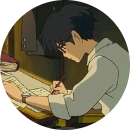They ___ good students.

Những câu hỏi liên quan
1. “ There is a good programme on TV tonight”, the students said. @ The students said______________________________________________________________.2. They will finish the work next week.@ The work ______________________________________________________________.VIII. Rewrite each sentence, using the given word in bracket. (0.5 pt)1. The water is highly polluted. We cannot swim in this part of the river. (because) @ _______________________________________________________________________...
Đọc tiếp
1. “ There is a good programme on TV tonight”, the students said.
@ The students said______________________________________________________________.
2. They will finish the work next week.
@ The work ______________________________________________________________.
VIII. Rewrite each sentence, using the given word in bracket. (0.5 pt)
1. The water is highly polluted. We cannot swim in this part of the river. (because)
@ __________________________________________________________________________.
2. Mr. Shaw couldn’t turn on the TV channel. He asked the nurse to do it. (so)
@ __________________________________________________________________________.
IX. Make sentences, using the words or phrases provided. You can add some words or make changes.(1 pt)
1. People / will / more / aware / protecting / environment /.
@ __________________________________________________________________________.
2. The weather / windy / dry / so / forest fire / spead / quickly /.
@___________________________________________________________________________.
3. When / you / don't / understand / what / person / intend / say /, / ask / directly / but / gently /. @___________________________________________________________________________.
4. A lot of / invention / carry out / scientists / recently /.
@___________________________________________________________________________. cíu em mn ơi 8h tối nay e nộp bài r
Travelling is a good hobby. If you have very little money, backpacking is a good way to travel. Many students like to backpack. They can travel cheaply. They can travel to many places. These travelers carry their belongings in large backpacks. They are called backpackers. Backpackers take buses or trains to save money. They camp outdoors to sleep. If they stay in a city, they may go to a hostel. Hostels are very cheap. Travelers often share rooms at hostels. There are only a few toilets and bath...
Đọc tiếp
Travelling is a good hobby. If you have very little money, backpacking is a good way to travel. Many students like to backpack. They can travel cheaply. They can travel to many places. These travelers carry their belongings in large backpacks. They are called backpackers. Backpackers take buses or trains to save money. They camp outdoors to sleep. If they stay in a city, they may go to a hostel. Hostels are very cheap. Travelers often share rooms at hostels. There are only a few toilets and baths. People share them, too. Hostels are good places to meet each other travelers. You can make friends. They can tell you about fun things to do in the area. Many hostels have kitchens. These kitchens have stoves. Some have toasters. You can buy your food from a store. Then, you can cook at the hostel. This is cheaper than eating out. Just remember to clean up when you are done!
20. What kind of travel will people choose if they have very little money?
A. Backpacking B. Adventure travel C. Family travel
21. What kind of transportation do backpackers choose?
A. Buses B. Trains C. Buses or trains.
22. What does the word “hostel” in line 4 refer to?
A. homestay B. inn C. apartment
23. Can backpackers cook at the hostel?
A. Yes, they can. B. No, they can’t. C. They can cook some simple dishes
25. What is the best title for the passage?
A. Drawback of backpacking. B. A good way to travel. C. Benefits of travelling
20. What kind of travel will people choose if they have very little money?
A. Backpacking B. Adventure travel C. Family travel
21. What kind of transportation do backpackers choose?
A. Buses B. Trains C. Buses or trains.
22. What does the word “hostel” in line 4 refer to?
A. homestay B. inn C. apartment
23. Can backpackers cook at the hostel?
A. Yes, they can. B. No, they can’t. C. They can cook some simple dishes
25. What is the best title for the passage?
A. Drawback of backpacking. B. A good way to travel. C. Benefits of travelling
Đúng 1
Bình luận (0)
1)It/ difficult/ learn English/ without/ good dicionary
2) It/ necessary/ students/ wear/ uniforms/ when/ they/ school
1)It/ difficult/ learn English/ without/ good dicionary
->It is difficult to learn English without having a good dictionary.
2) It/ necessary/ students/ wear/ uniforms/ when/ they/ school
-> It is necessary for children to wear uniforms when they go to the school?
Đúng 0
Bình luận (0)
1)It/ difficult/ learn English/ without/ good dicionary
It is difficult to learn English without a good dictionary.
2) It/ necessary/ students/ wear/ uniforms/ when/ they/ school
It is necessary for students to wear uniforms when they go to school.
Đúng 0
Bình luận (0)
28.Their ………is very good. They were close friends when they were students. A. friend B. friendly C. friendship D. unfriendly 29.He isn’t communicative. He isn’t ……………… in public. A. kind B. reserved C. generous D. sociable 30.………………, the fireman arrived in time to save the boy out of the flame. A. unluckily B. lucky C. unluckily D. luckily
Đọc tiếp
28.Their ………is very good. They were close friends when they were students.
A. friend B. friendly C. friendship D. unfriendly
29.He isn’t communicative. He isn’t ……………… in public.
A. kind B. reserved C. generous D. sociable
30.………………, the fireman arrived in time to save the boy out of the flame.
A. unluckily B. lucky C. unluckily D. luckily
Xem thêm câu trả lời
Exercise 5: Read the passage and answer the questions Two young musiciansFrank and Jimmy are music students. They live in the same house and they are good friends but they like very different kinds of music.Frank comes from a family of musicians. His father is the conductor of one of England’s top youth orchestras and his stepmother gives lessons in classical guitar. Frank is studying classical music. He can play the violin very well and he’s also learning the v...
Đọc tiếp
Exercise 5: Read the passage and answer the questions
Two young musicians
Frank and Jimmy are music students. They live in the same house and they are good friends but they like very different kinds of music.
Frank comes from a family of musicians. His father is the conductor of one of England’s top youth orchestras and his stepmother gives lessons in classical guitar. Frank is studying classical music. He can play the violin very well and he’s also learning the viola. He practises every evening and sometimes he plays for three or four hours. He also loves listening to classical and modern tango and plays the violin in a modern tango group called Tangota. Tangota play once a month at a small nightclub.
Jimmy is doing a university course in pop music. He likes listening to many kinds of music. He listens to slow music when he’s stressed, he listens to jazz when he’s tired, and when he’s in a really good mood he listens to reggae or rock music. He loves going to concerts but he doesn’t have a lot of money so he can’t do that very often. Jimmy’s a big fan of Tangota but he doesn’t like listening to Frank’s violin every evening when Frank is practising, so he listens to loud music on his headphones. Jimmy also plays in a band. It’s a rock band called Happy Sunday. They usually get together once a week to practise. Jimmy’s friend has a club and the band can practise there in a large room upstairs. At the moment they’re meeting twice a week because they’re making an album.
1. What instrument does Frank’s stepmother teach?
...........................................................................................................................................
2. How often does Frank’s band give concerts?
...........................................................................................................................................
3. Why doesn’t Jimmy go to a lot of concerts?
...........................................................................................................................................
4. What music does Jimmy listen to when he’s happy?
...........................................................................................................................................
5. Where does Jimmy’s band practise?
...........................................................................................................................................
Khoanh nhoa ^^1. The woman sings the song (beautiful / beautifully)2. You did very (good / well)3. Our team won the games because we played (well / good)4. They are (good/well) students.5. She speaks English very (quick / quickly)6. Her English is quite (fluent / fluently)7. She fell and hurt herself (bad / badly)8. He speaks English (good / well)9. Run (fast / fastly) and we catch the bus.10. I’m sorry. I know I behave (bad / badly)
Đọc tiếp
Khoanh nhoa ^^
1. The woman sings the song (beautiful / beautifully)
2. You did very (good / well)
3. Our team won the games because we played (well / good)
4. They are (good/well) students.
5. She speaks English very (quick / quickly)
6. Her English is quite (fluent / fluently)
7. She fell and hurt herself (bad / badly)
8. He speaks English (good / well)
9. Run (fast / fastly) and we catch the bus.
10. I’m sorry. I know I behave (bad / badly)
1. The woman sings the song (beautiful / beautifully)
2. You did very (good / well)
3. Our team won the games because we played (well / good)
4. They are (good/well) students.
5. She speaks English very (quick / quickly)
6. Her English is quite (fluent / fluently)
7. She fell and hurt herself (bad / badly)
8. He speaks English (good / well)
9. Run (fast / fastly) and we catch the bus.
10. I’m sorry. I know I behave (bad / badly)
Đúng 3
Bình luận (1)
1. Mr. Liam is a good English teacher.
Mr. Liam__________
2. Miss Linda is a careless typist.
Miss Linda ____________
3. My friends are fast swimmers.
My friends__________
4. They are not good at playing chess.
They______________
5. The students are not bad singers.
They____________
1 ....... teaches English well
2 ....... types carelessly
3 ....... swim fat
4 ...... play chess badly
5 ...... don't sing badly
Đúng 6
Bình luận (1)
1. Mr. Liam teaches English well.
2. Miss Linda types carelessly.
3. My friends swim fast.
4. They don't play chess well.
5. They don't sing badly.
Đúng 1
Bình luận (0)
1. teaches E well
2. types carelessly
3. swim fast
4. play chess badly
5. don't sing badly
Đúng 0
Bình luận (0)
Read the following passage and mark the letter A, B, c, or D on your answer sheet to indicate the correct answer to each of the questions from 35 to 42. Successful students often do the followings while studying. First, they have an overview before reading. Next, they look for important information and pay greater attention to it [which often needs jumping forward or backward to process information). They also relate important points to one another. Also, they activate and use their prior knowle...
Đọc tiếp
Read the following passage and mark the letter A, B, c, or D on your answer sheet to indicate the correct answer to each of the questions from 35 to 42.
Successful students often do the followings while studying. First, they have an overview before reading. Next, they look for important information and pay greater attention to it [which often needs jumping forward or backward to process information). They also relate important points to one another. Also, they activate and use their prior knowledge. When they realize that their understanding is not good, they do not wait to change strategies. Last, they can monitor understanding and take action to correct or "fix up" mistakes in comprehension.
Conversely, students with low academic achievement often demonstrate ineffective study skills. They tend to assume a passive role, in learning and rely on others (e.g., teachers, parents) to monitor their studying, for example, low-achieving students often do not monitor their understanding of content; they may not be aware of the purpose of studying; and they show little evidence of looking back, or employing "fix-up” strategies to fix understanding problems. Students who struggle with learning new information seem to be unaware that they must extent effort beyond simply reading the content to understand and remember it Children with learning disabilities do not plan and judge the quality of their studying. Their studying may be disorganized. Students with learning problems face challenges with personal organization as well. They often have difficulty keeping track of materials and assignments, following directions, and completing work on time. Unlike good studiers who employ a variety of study skills in a flexible yet purposeful manner, low-achieving students use a restricted range of study skills. They cannot explain why good study strategies are important for learning; and they tend to use the same, often ineffective study approach for all learning tasks, ignoring task content, structure or difficulty.
Question 41: In compared with low-achieving students, successful students use.
A. aimless study techniques
B. various study skills
C. restricted strategies
D. inflexible study ways
Đáp án B
So với các học sinh kém, học sinh giỏi sử dụng ______.
A. các phương pháp học tập vô nghĩa B. các kỹ năng học tập khác nhau
C. các chiến lược hạn chế D. cách học tập không linh hoạt
Căn cứ vào thông tin sau: “Unlike good studiers who employ a variety of study skills in a flexible yet purposeful manner, low-achieving students use a restricted range of study skills.” (Không giống những học sinh gỏi, những người sử dụng nhiều kỹ năng học tập một cách linh hoạt nhưng có mục đích, những học sinh kém sử dụng các kỹ năng học tập rất hạn chế.)
Đúng 0
Bình luận (0)
Read the following passage and mark the letter A, B, C, or D on your answer sheet to indicate the correct answer to each of the questions from 36 to 42. Successful students often do the followings while studying. First, they have an overview before reading. Next, they look for important information and pay greater attention to it (which often needs jumping forward or backward to process information). They also relate important points to one another. Also, they activate and use their prior knowle...
Đọc tiếp
Read the following passage and mark the letter A, B, C, or D on your answer sheet to indicate the correct answer to each of the questions from 36 to 42.
Successful students often do the followings while studying. First, they have an overview before reading. Next, they look for important information and pay greater attention to it (which often needs jumping forward or backward to process information). They also relate important points to one another. Also, they activate and use their prior knowledge. When they realize that their understanding is not good, they do not wait to change strategies. Last, they can monitor understanding and take action to correct or “fix up” mistakes in comprehension.
Conversely, students with low academic achievement often demonstrate ineffective study skills. They tend to assume a passive role, in learning and rely on others (e.g., teachers, parents) to monitor their studying, for example, low-achieving students often do not monitor their understanding of content; they may not be aware of the purpose of studying; and they show little evidence of looking back, or employing “fix-up” strategies to fix understanding problems. Students who struggle with learning new information seem to be unaware that they must extent effort beyond simply reading the content to understand and remember it. Children with learning disabilities do not plan and judge the quality of their studying. Their studying may be disorganized. Students with learning problems face challenges with personal organization as well. They often have difficulty keeping track of materials and assignments, following directions, and completing work on time. Unlike good studiers who employ a variety of study skills in a flexible yet purposeful manner, low-achieving students use a restricted range of study skills. They cannot explain why good study strategies are important for learning; and they tend to use the same, often ineffective study approach for all learning tasks, ignoring task content, structure or difficulty.
Question:In compared with low-achieving students, successful students use______.
A. aimless study techniques
B. various study skills
C. restricted strategies
D. inflexible study ways
Đáp án B
So với các học sinh kém, học sinh giỏi sử dụng ____.
A. các phương pháp học tập vô nghĩa
B. các kỹ năng học tập khác nhau
C. các chiến lược hạn chế
D. cách học tập không linh hoạt
=> đáp án B
Đúng 0
Bình luận (0)

























